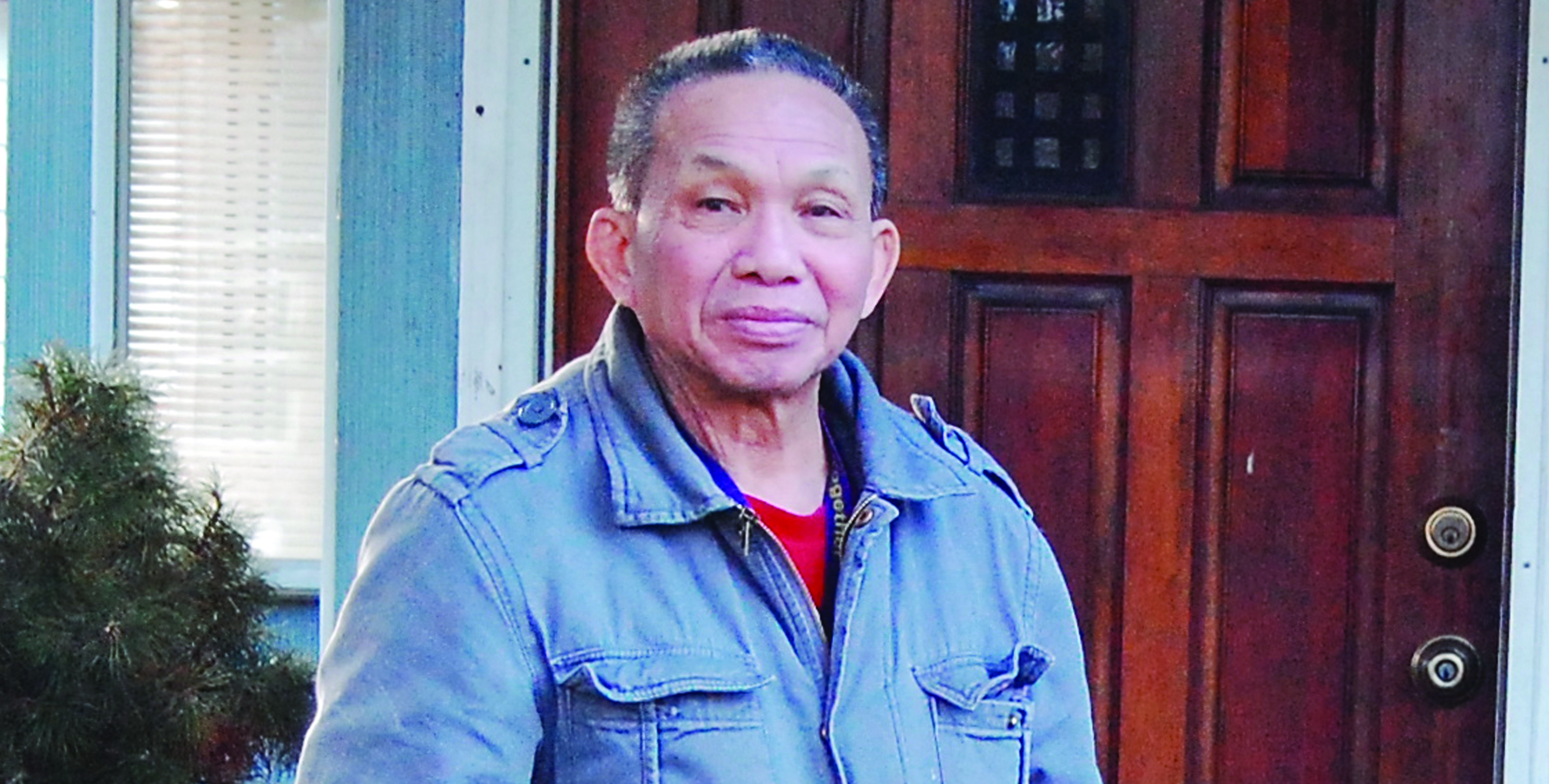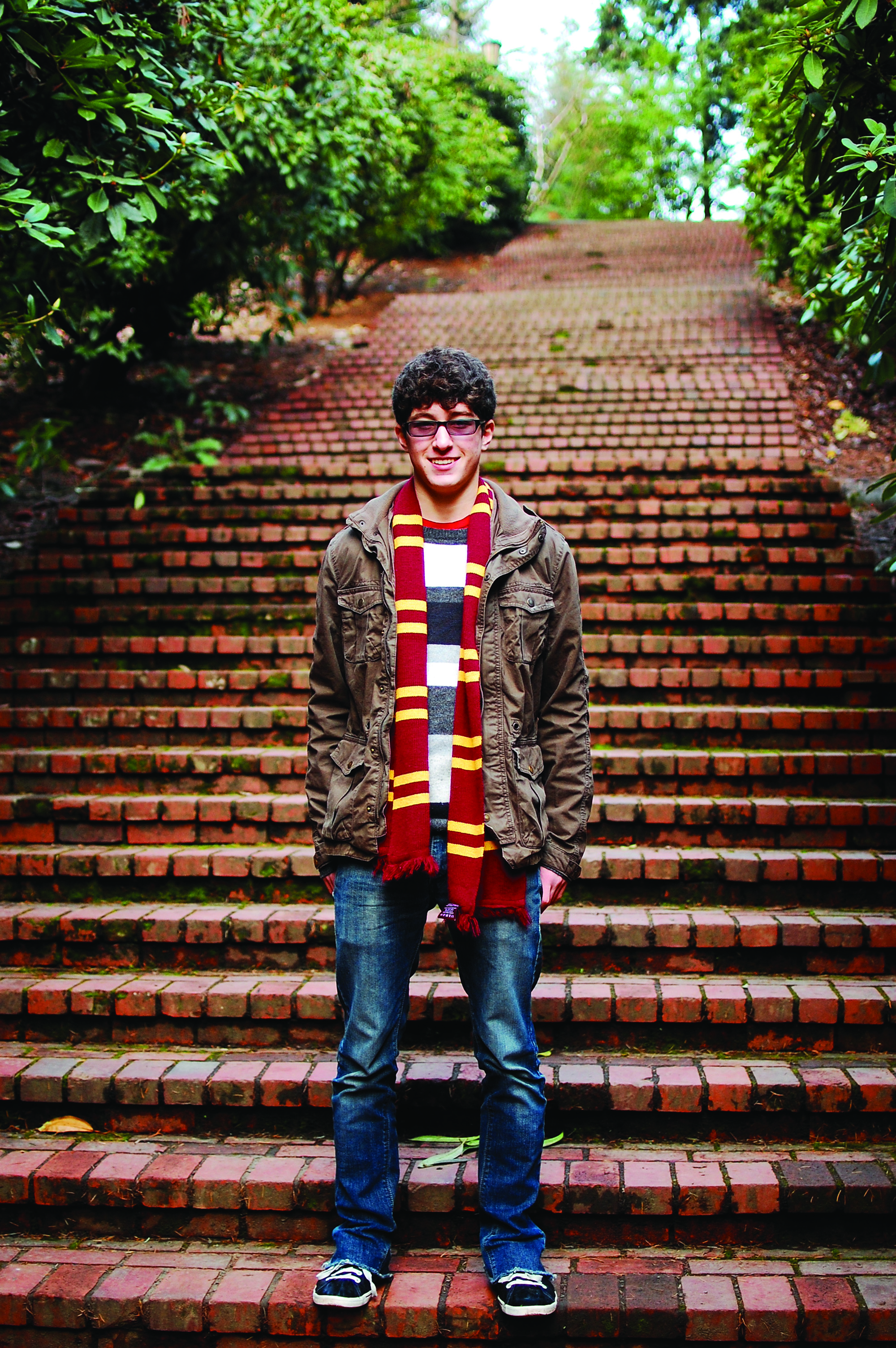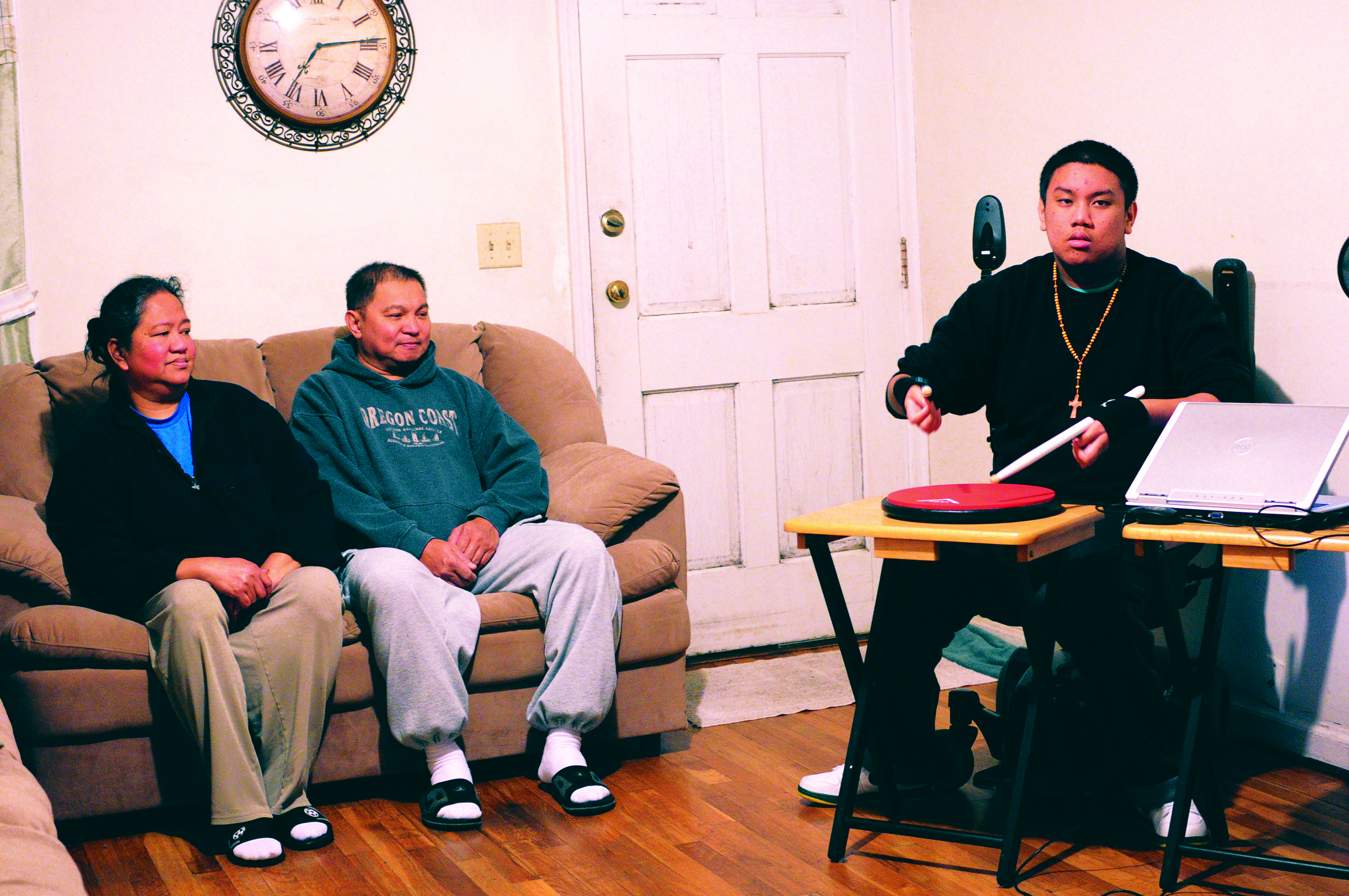
To see the story in Vietnamese, click here
It was 1971 when Donald Tran lost his girlfriend to a fatal car crash. He was 20 years old at the time and away fighting for the South in the Vietnam War. When he was able to return with hopes of seeing the one he loved, he was informed of her death. Her body had already been buried, leaving him no one to say goodbye.
This was not the first time Tran had experienced loss. At a young age, he lost his mother and father in a bombing in Long Binh, South Vietnam. His brother also was the victim of war violence and died before Tran really got to know him. At the time, Tran says, he was too young to understand really what loss meant.
Living in a country where everyday life was characterized by violence and oppression, Tran was forced to rely on no one but himself for comfort. Since escaping to America at the end of the war, he has faced a language barrier but has found a place to call home working as a custodian at Grant High School.
In Vietnam, there had been fighting decades before the war began. The Vietnamese had suffered under French colonial rule for nearly six decades. After the French pulled out of Vietnam, the United States remained backing the democratic South Vietnam to prevent the spread of communism.
Growing up in Vietnam, Tran lived in Saigon. As the capital, Tran describes Saigon as big and very crowded. Saigon has been renamed Ho Chi Minh City in honor of their leader. But many still chose to refer to it as Saigon. Tran attended school up through enrollment in college when his life was interrupted by the draft.
At age 18, Tran abandoned his education where he had hoped to go into the medical field to fight alongside the Americans. Tran says he “didn’t really have any emotion about joining the war. It was the draft and everybody was expected to do so.” Upon being drafted, he was put through a three-month combat training camp and was taught English for better communication with the American troops before joining the battle.
When the war ended in 1975, many native fighters feared for their safety in their home country. “I was wrongly investigated by the government for being part of a hideout known for killing communists,” Tran says. “With the country becoming very communist I could have been killed if I stayed.”
With the communists in control, the Vietnamese people were forced to work. Every day, groups of people would be taken out in the morning to perform fieldwork before being brought back in the evening. One day, Tran escaped after being brought out to perform his labor and he hid out in the brush. After waiting for the people to be taken back to the camps, he followed a waterway and traveled by himself to Malaysia.
After reaching Malaysia, he hoped to continue his journey to America. “While in the war, I learned of America as having a high lifestyle and hoped it would provide me with opportunities to better myself,” he says. From Malaysia Tran was able to board a boat with about 50 other Vietnamese refugees and sail to America.

Before coming to Portland, Tran lived in Oklahoma where he found pipe work. Although the biggest struggle was getting here, Tran says he was “very happy to be in America because he finally felt safe.” But unsatisfied with the weather and strained by the work in Oklahoma, Tran came to Portland in 2004.
After taking an English proficiency test at Benson High School, he was cleared to work for the school district and was offered at job at Grant. “I really like working at schools,” he explains, “students are pure and innocent. They provide a good environment to be in.”
Working the day shift at Grant, Tran, now 60, works under the supervision of Wayne Curtin, Grant’s head custodian. “My boss helps me and teaches me when I don’t know something and I am very grateful,” Tran says of Curtin.
Curtin, who keeps a Vietnamese pocket dictionary in his desk, says, “It works both ways, because I am learning a language, too.” Although previously working the night shift, Curtin moved Tran to the day shift after realizing previous staff members were taking advantage of him and having him do their sections of cleaning at the school, as well as his own.
“Don works very hard,” Curtin says. “The only problem that comes up is the language barrier.”
It’s a common barrier for immigrants, says Margaret Malarkey, the director of community and donors at the Immigrant and Refugee Community Organization in Portland. “Living our everyday lives, we often forget how intense it is to speak, let alone get a job with a new language,” she says.
Malarkey says many immigrants feel so fortunate to be here. Because of that, they often work extremely hard to make their lives successful.
For Tran, sometimes the language gets in the way. When given direction, he’ll occasionally get lost in the building. Sometimes he forgets what task needs to be completed at a certain time. Once, although Tran was told to clean the window wells, Curtin discovered him cleaning the window itself. After asking him why, Tran told Curtin he was making sure to wash the “window well.”
Sometimes, frustrated teachers fail to help him comprehend that they would like their floors swept or a new garbage can. Students attempt to ask a favor and he doesn’t always understand. The solution, he says? Write it down.
Today, Tran studies English at Mt. Hood Community College. In his adult basic skills class, he was recently recognized as “Student of the Month” for his hard work and dedication. Filled with international students, the class builds on the prior English knowledge Tran learned from American forces in the war. “It is hard to understand when people speak too fast. Their pronunciation is so different,” Tran says. However, his ability to understand the written language has greatly improved.
Curtin often writes down daily instructions for Tran. And Tran knows he’s getting better. Reading once was impossible. He says now he can read about 80 percent of the content. “Books make me happy,” he says.
Studying late into the night, he hopes that next term his speaking will improve. He believes every small achievement is a step toward self-improvement.
Tran misses his home country, but he knows he will never return. “The lifestyle in America is better,” he says. “Follow the law and you’re free to live your life.” This is a life style he values over the control he experienced in Vietnam. However, he won’t forget where he came from. By attending both American and Vietnamese churches, he chooses to celebrate both cultures.
Through hard work, Tran has begun to build a bridge over the language barrier he initially faced when he came to America. No longer on food stamps, he owns his own house and supports himself without the aid of the government. After leaving a country of turmoil, Tran is an example of life being what you make of it. Coming up on the horizon is a new challenge.
“I’d really like to be able to write,” says Tran, who plans to take a writing class next term. His story would make a good book.




